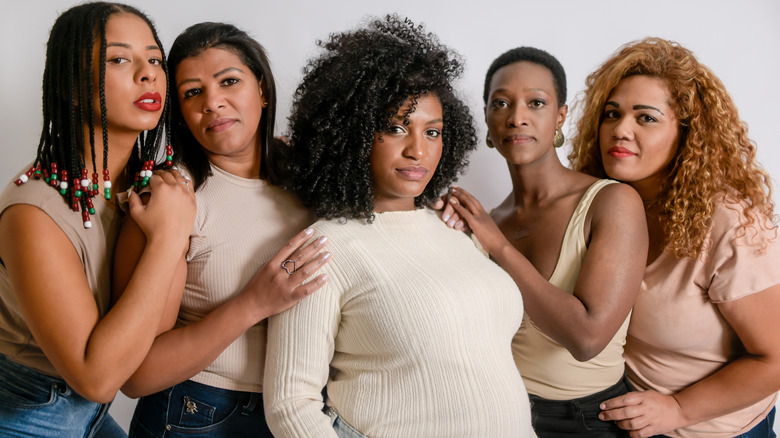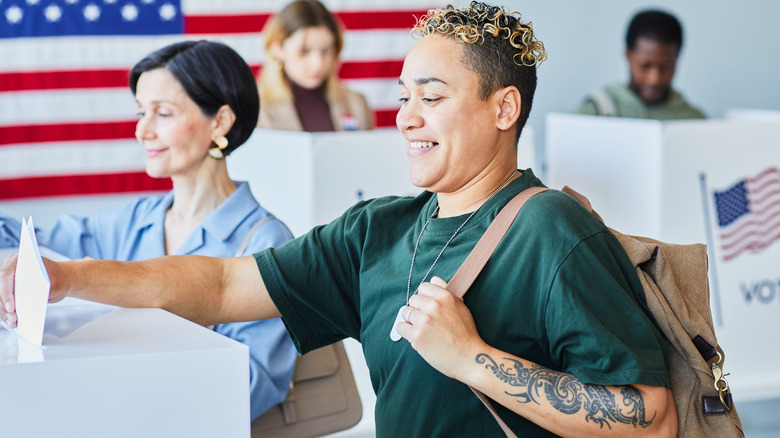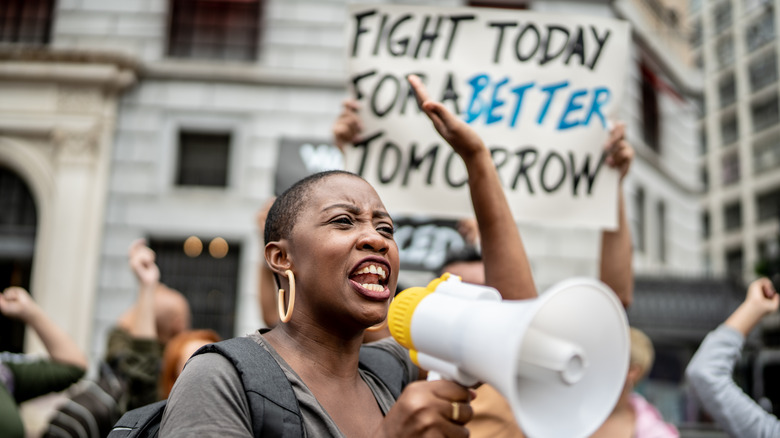What Is The Racial Wealth Gap And How Is It Affecting Black Women?
The racial wealth gap is an often overlooked and ultimately detrimental economic reality for people of color in the U.S. This gap refers to the disparity between household assets across different races. For instance, the average wealth of white U.S. households is nearly 6.5 times greater than Black households, and a Black nuclear family's average wealth amounts to less than 15% than that of a white nuclear family. This gap is made even worse for Black women and queer people, who face dual barriers with both gender and racial discrimination. These dual barriers have not only left many Black women and queer people experiencing higher levels of poverty but have also ensured that they remain disproportionally disadvantaged in both income and wealth outcomes.
Last week, the State of California's Department of Justice Reparations Task Force issued a 1,000-page report with legislative recommendations to address racial inequalities within the state. Among the 115 recommendations is a controversial plan to offer cash payments of $1.2 million to each descendant of an enslaved person in California as a way to help eliminate the racial wealth gap. While many people object to strategies like cash payments, the Task Force's many in-depth suggestions present new possibilities for Black Americans and their economic futures. The revival of the reparations conversation is not only a timely opportunity for current generations to acknowledge past wrongs, but also allows for a reevaluation of how and why we should work to level the wealth playing field. Let's dive into the racial wealth gap and how it's affecting so many Black Americans.
What caused the racial wage gap?
It's impossible to look at the racial wealth gap in 2023 without understanding the history of segregation that directly contributed to it. The current gap is the result of years of legal barriers that began before The Civil War started. Black people were not only prohibited from accumulating wealth during slavery but continued to face discrimination long after emancipation. In addition to limited voting rights, workplace discrimination, a lack of access to education, and racially motivated massacres that destroyed property and wealth, key statutes known as Jim Crow laws further contributed to today's gap.
Legal segregation led to the exclusion of Black Americans from multiple federal programs which would have allowed Black families to accumulate the same kinds of generational wealth seen in many white families. Notably, Black people were excluded from federal land grants that more than 1.5 million white families received during the late 1800s and early 1900s. (Today, as many as 46 million descendants of these land grants are still receiving wealth benefits.) Black people were also excluded from federal mortgage subsidies and programs in the 1930s that essentially created the middle class. Instead, the federal government created the National Appraisal System, which tied property value and loan eligibility to racially biased assessments that categorized non-white neighborhoods as hazardous. Known as redlining, this meant that people of color were denied the same loans awarded to white families and ensured that racial segregation and disproportionately low homeownership rates for Black Americans persisted for generations.
How is this affecting Black women specifically?
Black women face one of the worst gender wage gaps in the country, earning just 64 cents for every $1 earned by a white, cisgender man. Black women's median wealth amounts to less than one cent for every dollar of white men's wealth. When discussing the lack of income and wealth that Black women will receive and accumulate, it is important to know that it is more than just a few cents difference. The wage gap compounds over the course of a 40-year career leaving Black women with $964,400 less than a white cis man overall.
This income inequality means that Black mothers face higher poverty rates in addition to more extreme motherhood penalties, including lost wages and fewer job opportunities. This leads to lower-paying jobs and less room for career advancement, further impacting a Black woman's ability to accumulate wealth. Black birthing people also experience an alarmingly high rate of maternal mortality, being three times more likely to die from pregnancy-related causes than white birthing people. This loss of life further contributes to the wealth gap in addition to causing generational trauma. Research has shown that racism has serious health implications for people of color. From housing inequities to workplace conflict to less access to healthcare, systemic racism ensures that Black women are more likely to experience chronic illness, complications, and even death.
What has kept the U.S. from closing the gap?
Even though taxpayer money in the form of programs, cash, or housing allotments could fundamentally change the racial wealth gap, finding support for these kinds of reparations can be difficult. The current economic concerns of many Americans (inflation, housing prices, etc.) cements that many non-Black voters won't support taxpayer money going to only select groups. In fact, the California Reparations Task Force's recent recommendation to offer cash payments to descendants of enslaved people was met with strong opposition, with a majority of voters reporting a negative view of the Task Force as a result.
It's important to remember that California is not alone in this struggle. 68% of U.S. adults don't support the idea of reparations for descendants of enslaved, Americans and 4 in 10 believe that the legacy of slavery does not even affect Black Americans today. Without a clear willingness to acknowledge that there is in fact a problem, the U.S. has made finding solutions to correct the racial wealth gap incredibly difficult. The country has debated the concept of reparations since the end of the Civil War without reaching a clear solution or plan. The racial and political divide among Americans who are willing to even acknowledge the legacy of slavery (for instance, 82% of Democrats are willing to acknowledge slavery's role in contemporary Black people's lives vs. only 29% of Republicans) showcases just how far the country still has to go to change for the better.
What we can do about it
While the Civil Rights Movement of the 1960s led to expanded rights for Black Americans and ended legal segregation, it did not end discrimination or correct the generational disadvantages of Black Americans. Today, segregation stemming from discriminatory redlining is still seen in metropolitan areas across the country. Black homeowners (of which there are notably fewer than white homeowners) still face racial bias in their property appraisals. Jim Crowe era violence has persisted in today's police forces, leading Black Americans to experience nearly 3 times more fatal police shootings of white Americans.
There is no singular way to fix all racial discrimination in America, but there are absolutely legislative measures we can and must advocate for to help correct the racial wage gap. From expanding existing laws protecting workers from racial discrimination to implementing pay equity and transparency laws, federal, state, and local legislators can fight for more equitable workplaces for Black Americans. Additionally, improving childcare options, paid family and medical leave, and early childhood education access would also support Black parents and ensure they receive the time and pay necessary to have children without penalty. This, on top of instituting mandatory education and training on implicit and overt racial bias, could dramatically change the way Black Americans are treated across the country. Advocating on behalf of racial equity (whether that be in policies, trainings, and/or specific legislation) is key to fighting systemic discrimination and someday ending the racial wealth gap.




